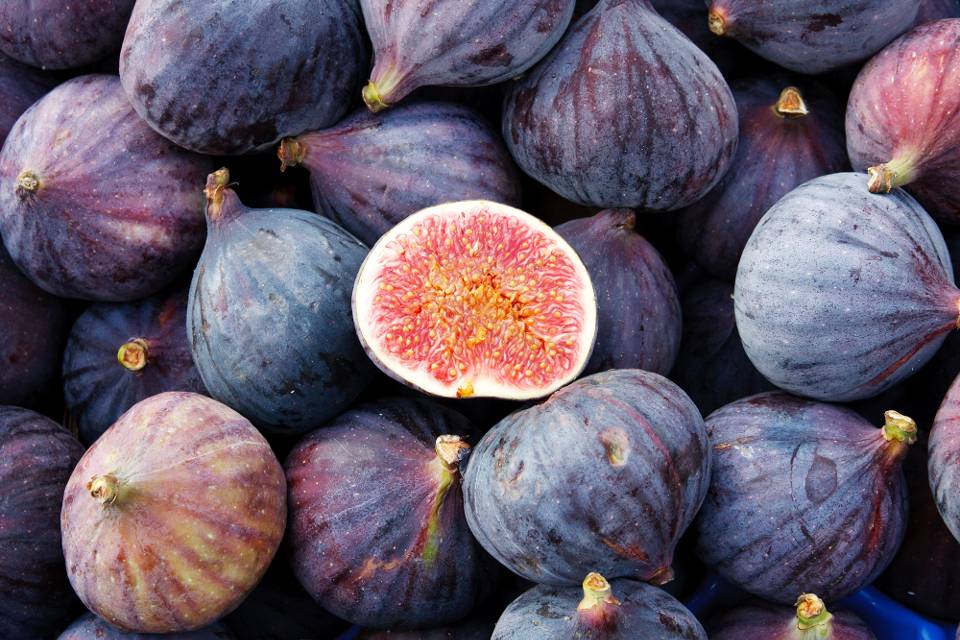 (Bertl123 / iStock / Getty Images Plus)
(Bertl123 / iStock / Getty Images Plus)
Figs
If God had not made brown honey, men would think figs much sweeter than they do. – Xenophanes
I was back in Istanbul Airport waiting for my flight back to the Philippines, with some remaining Turkish liras in my bag. While contemplating what would be best to buy with it, I saw some figs. I have seen this sold in numerous shops near the Bosphorus, but the layered stock of Turkish delight boxes, glorious spice shops, and multi-colored handwoven textiles sold in the Grand Bazaar must have paled its presence.
As if seeing figs for the first time, I knew I had to buy some. Figs are local to Istanbul, and for a city associated with both Islam and Christendom, it was most appropriate to buy something that figured in the Book.
The fig is a plant of the mulberry family (Moraceae). Its tree provides shade, firewood, and nourishing fruit each year. Dried figs can be squeezed into loaves or placed on strings and used as food during long, arduous journeys across the desert. In the Mediterranean, the fig is so widely used, fresh or dried, that it is called the poor man’s food. It provides him with high protein, high carbohydrate food source in a region where food was scarce. Each fruit also contains significant calcium, potassium, phosphorus, and iron.
The fig was also one of the earliest fruit trees to be cultivated. It grows readily from seeds and cuttings, especially along watercourses and bottomlands, throughout the Holy Land, and it figured strongly in the Bible. It symbolizes prosperity in the Old Testament and spiritual barrenness in the New Testament.
In Deuteronomy, the Promised Land is “a land of wheat and barley, of vines and fig trees and pomegranates, a land of olive oil and honey; a land where you will eat food without scarcity, in which you will not lack anything;” (Deuteronomy 8:8–10). During the reign of Solomon, Judah and Israel, from Dan to Beersheba, lived in safety, each man “under his own vine and fig tree” (1 Kings 4:25), an indicator of national wealth and prosperity. “There was a fig tree in the garden of the Song of Solomon, and in the year of love, the tree formed its fruit early.” (Song 2:13).
Seeing a fig tree by the side of the road, Jesus went to it and found nothing at all on it but leaves. Then he said to it, “May no fruit ever come from you again!” And the fig tree withered at once. (Matthew 21: 19) Matthew specifically tells us that the fig tree had leaves but no fruit. As fig trees set fruit before leaves, its leaves indicate that the tree produces fruit. The barrenness of the tree, when expected to bear fruit, becomes the central feature of this incident. (Dennis Bratcher)
As my remaining Turkish liras allowed me to buy a large fig pack of a brand best known for quality, I was confident I had my money’s worth, with this thought running in my head, “May we always seek to be unbarren”.


No Comments